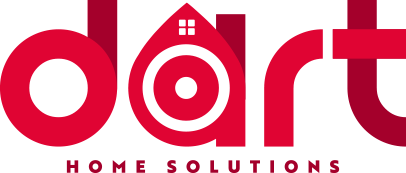How To Choose The Perfect Professional Organizer
Are you feeling overwhelmed by the clutter in your home or office? Do you need someone to help you regain control of your living or workspace? If the answer is yes, a professional organizer could be the solution. But with so many professionals out there, how do you choose the perfect one for your needs? In this article, we’ll explore the essential factors to consider when selecting your ideal professional organizer.

1. Identify Your Goals
Before you start your search, pinpoint your organizing goals. Do you want to declutter your home, create an efficient office space, or streamline your personal finances? Understanding your objectives will help you find a professional organizer with the right expertise and approach.

2. Certification and Training
Look for professional organizers with relevant certification and training. The America Society of Professional Organizers (ASPO), the National Association of Productivity and Organizing Professionals (NAPO) and the Institute for Challenging Disorganization (ICD) offer certifications that indicate a commitment to professional standards and ethical conduct. These certifications can give you confidence in your organizer’s skills.
1. Identify Your Goals
Before you start your search, pinpoint your organizing goals. Do you want to declutter your home, create an efficient office space, or streamline your personal finances? Understanding your objectives will help you find a professional organizer with the right expertise and approach.

2. Certification and Training
Look for professional organizers with relevant certification and training. The America Society of Professional Organizers (ASPO), the National Association of Productivity and Organizing Professionals (NAPO) and the Institute for Challenging Disorganization (ICD) offer certifications that indicate a commitment to professional standards and ethical conduct. These certifications can give you confidence in your organizer’s skills.

3. Specialization
Consider an organizer’s area of specialization. Some organizers excel in residential settings, while others focus on office organization, time management, or specific challenges like hoarding. Choosing an organizer with expertise in your specific area of concern can make a significant difference in the outcome.

4. Reviews and Testimonials
Check for reviews and testimonials from past clients. These can provide insights into the organizer’s reputation, work quality, and client satisfaction. Online platforms like Yelp, Google, or the organizer’s website may host these reviews.

5. Initial Consultation
Schedule an initial consultation with the organizer you’re considering. This meeting is an opportunity to discuss your goals, assess the organizer’s approach, and see if you feel comfortable working together. It’s also a chance to clarify rates, the scope of work, and expectations.

6. Compatibility and Communication
A strong working relationship with your organizer is crucial. Effective communication and compatibility play a significant role in the success of your project. During your consultation, assess whether you and the organizer have a rapport and if their communication style aligns with your preferences.
7. Organizational Philosophy
Professional organizers may follow various organizational philosophies and methods. Some prefer minimalism, while others emphasize personalized solutions and working with your existing preferences. Choose an organizer whose philosophy resonates with your values and goals.
8. Respect for Confidentiality
Your professional organizer will have access to your personal and sometimes sensitive information. Ensure that the organizer demonstrates respect for confidentiality and privacy. A signed confidentiality agreement can provide peace of mind.
9. Pricing and Contracts
Clarify the organizer’s pricing structure and contract terms. Understand the rates for their services, whether they charge hourly or per project, and any additional costs for supplies or travel. A clear contract outlining responsibilities, timelines, and payment schedules is essential.
10. Flexibility and Adaptability
Life can be unpredictable, and your organizing needs may change. Ensure that your organizer is flexible and adaptable to adjustments in your project’s scope or timeline. A good organizer should be willing to accommodate your evolving requirements.
In Conclusion
Choosing the right professional organizer is a significant step towards achieving a clutter-free and organized life. By considering these essential factors and conducting thorough research, you can find the perfect organizer who aligns with your goals, values, and preferences. With the right partnership, you’ll soon enjoy the benefits of an organized and stress-free living or workspace.
